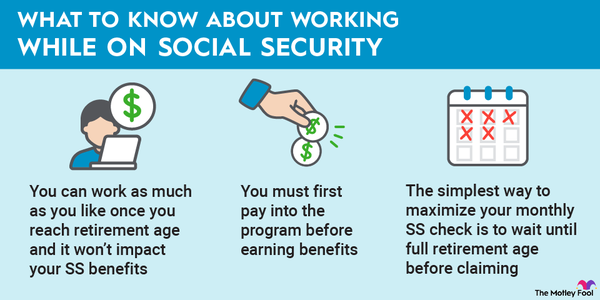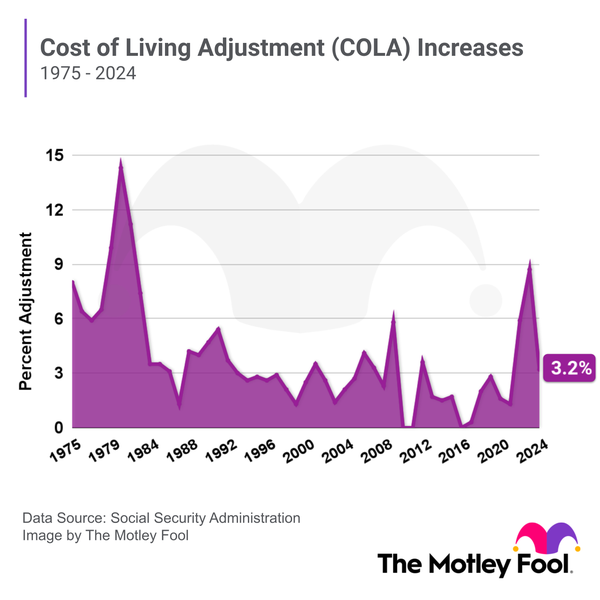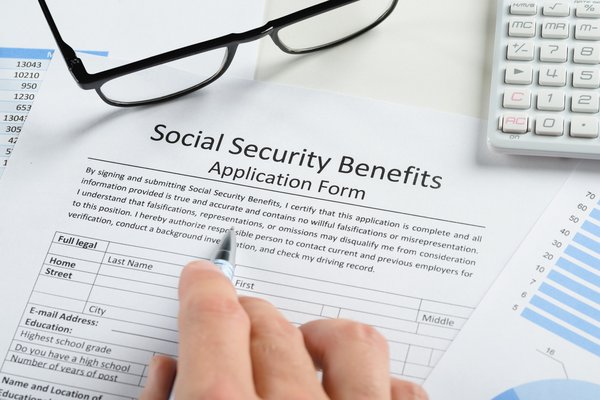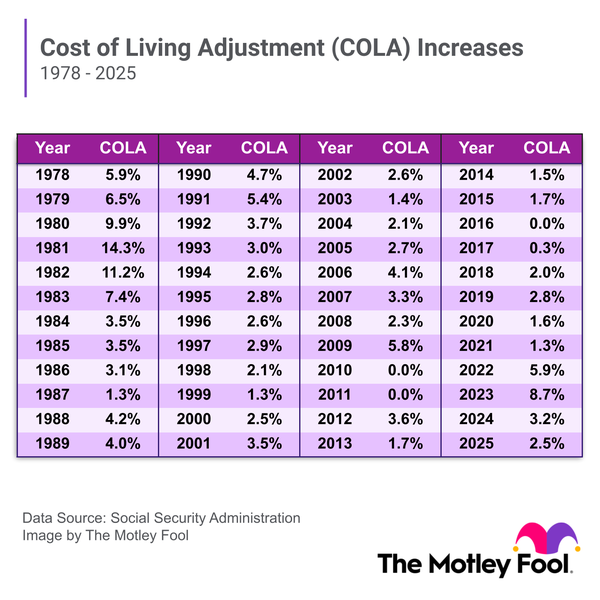Full retirement age (FRA) is the age when you can claim your standard Social Security benefit, or your primary insurance amount (PIA), from Social Security. Your PIA is the standard amount you can expect to receive based on your inflation-adjusted average wages earned throughout your career. Full retirement age is 66 and 10 months for those born in 1959 and 67 for those born in 1960 or later -- it varies depending on your birth year.
It is important to know your full retirement age, as it affects when you can claim Social Security without reducing your benefits. It also impacts the amount of delayed retirement credits you can earn in order to raise your benefits, and how much you can earn from working while receiving Social Security without forfeiting any of your benefits.
FRA chart
Social Security full retirement age chart
The chart below shows the full retirement age for people born at different times.
| Birth Year | Full Retirement Age |
|---|---|
| 1943 to 1954 | 66 |
| 1955 | 66 and 2 months |
| 1956 | 66 and 4 months |
| 1957 | 66 and 6 months |
| 1958 | 66 and 8 months |
| 1959 | 66 and 10 months |
| 1960 and later | 67 |
How age affects benefits
How does full retirement age affect your Social Security benefits?
If you claim your benefits at full retirement age, you will receive your standard Social Security benefit amount. If you claim prior to FRA, you will be subject to early filing penalties that reduce your benefit by the following amounts:
- 5/9 of 1% for each of the first 36 months before FRA
- 5/12 of 1% for each subsequent month before FRA
This amounts to a 6.66% annual reduction for each of the first three years and an additional 5% reduction for each following year before FRA. If you claim benefits at 62 with an FRA of 67, you will face a full 30% reduction in benefits.
By contrast, if you claim benefits after FRA, you receive delayed retirement credits valued at 2/3 of 1% per month. This results in an 8% annual increase to your monthly benefit. You can earn delayed retirement credits until age 70. After that, there's no financial benefit in delaying your claim. Delayed retirement credits cannot be earned if you are claiming either spousal or survivor benefits.
Working after FRA
Working after full retirement age
Retirees may work while collecting Social Security benefits, but those younger than their FRA will be subject to the retirement earnings test (RET).
Under this test, if your earnings exceed a certain limit (which changes annually), you will temporarily forfeit some or all of your benefits. Once you reach full retirement age, your benefit is recalculated and you may receive most of that money back.
Other FRA questions
Other key questions about full retirement age
There are a few other key things you may need to know about full retirement age.
1. Do survivor benefits increase after full retirement age?
If you are the surviving spouse who is claiming benefits based on your deceased partner's work record, there is no benefit to waiting until after full retirement age to claim your benefits. You do not earn delayed retirement credits, so your benefit will not increase.
However, if you are the higher-earning spouse, delaying your claim for benefits until after FRA can result in your widow(er) receiving more monthly income, as your widowed partner will receive the higher of the two monthly benefits you were each receiving.
Related retirement topics
2. Are Social Security benefits taxable at full retirement age?
Your age does not have an impact on whether you will owe federal tax on Social Security benefits. Depending on your earnings, you may pay federal taxes on Social Security benefits regardless of the age at which you claim.
Social Security benefits are taxed on amounts exceeding the "provisional income" limit set by the IRS. To calculate your provisional income, add up all non-Social Security sources of income, including nontaxable income such as municipal bond interest, and include half of your annual Social Security income.
Single filers earning provisional income between $25,000 and $34,000 and married joint filers earning between $32,000 and $44,000 will owe income taxes on 50% of their Social Security benefits. For single filers with provisional income above $34,000 and married filers above $44,000, up to 85% of Social Security benefits will be taxable.
3. Is your full retirement age affected by where you live?
Your full retirement age is not affected by where you live. Most Social Security rules, including those that determine benefit amount and claiming age, are set by federal law. However, some states do tax Social Security benefits, so where you live can affect tax levels on your retirement income. But again, the age at which you claim benefits won't affect your tax rate -- your income is the key factor.
FAQ
Working after FRA: FAQ
Can I work after full retirement age?
You can work after full retirement age and earn as much as you'd like without affecting your Social Security benefits.
How much can I earn if I work after my full retirement age?
If you continue to work after reaching full retirement age, you may work and earn as much as you'd like. You will not be subject to the retirement earnings test, and your Social Security benefits will not be affected.
If you work prior to FRA, you may forfeit part of your benefits if you earn above annual thresholds. However, your benefit amount will be recalculated at full retirement age to account for most of those forfeited funds.
Does working after full retirement age increase Social Security benefits?
Working after full retirement age could increase your Social Security benefits. Your benefits are based on average wages over your 35 highest-earning years (adjusted for inflation).
Even after you've reached full retirement age, and even if you've already claimed benefits, the Social Security Administration continues to recalculate your average annual wage to account for new income. If your earnings after FRA are higher than previous years and raise your average wage for your 35 top-earning years, your benefits could rise accordingly.
The Motley Fool has a disclosure policy.



















